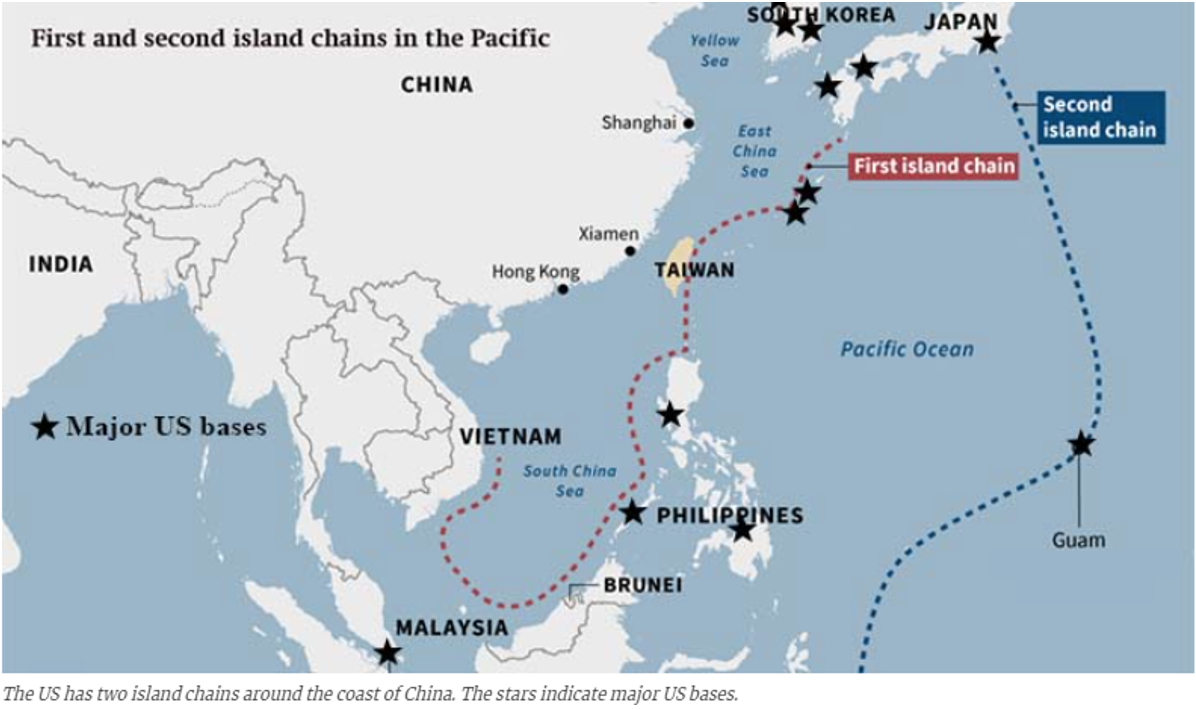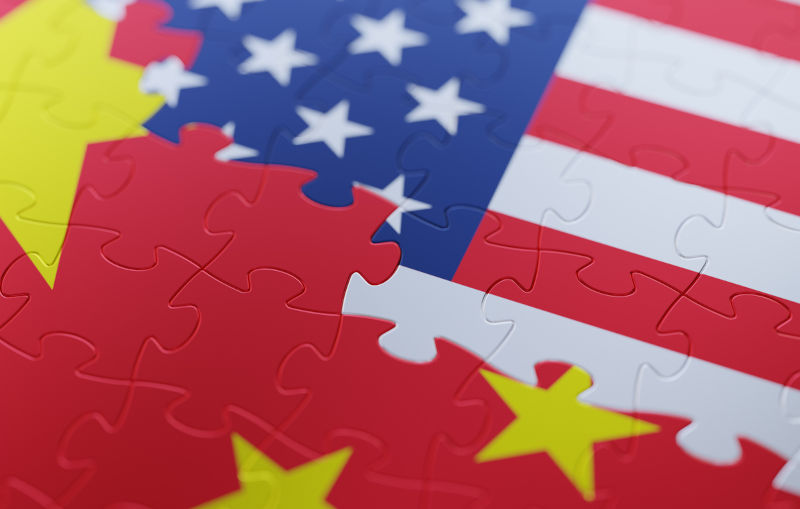Why China is not a threat: Sinophobia Unites Americans
September 28, 2023
Hatred of China is now the single issue that unites Democrats and Republicans. Having a perceived foe helps unite a deeply divided America internally, unless, of course, it becomes a losing cause. This three-part series explores how US narratives on the China threat have become entrenched in the West, and why China is not a threat - unless we make it one.
America is deeply divided
American society is more divided than it has been since its civil war of the 1860s. According to a Pew Research poll about six-in ten Republicans and more than half of Democrats have a very unfavourable view of the other party. Thirty years ago, fewer than a quarter in both parties rated the other party badly.
A recent CNN pollshowed almost 70 per cent of Republicans dont accept the electoral legitimacy of the Biden administration. Half of Americans suspect that elected officials might successfully overturn the results of a US election if their party does not win. And almost 60 per cent of voters lack confidence that elections in the US today reflect the will of the people.
Other polls by States United Action and Chicago Universitys CPOST research centre found that:
- Nearly two in five Americans supported violence if their preferred candidate were to lose because of unfair actions taken by their political opponents,
- One in seven Americans believe that the use of force is justified to achieve their political goals,
- Over half think elections wont solve Americas most fundamental political and social problems; and,
- Almost half consider political elites, both Democrats and Republicans, are the most immoral and corrupt people in America.
Sinophobia unites Americans
Given this dire political rift what is the easiest way to unite Americans? History shows that confronting a common enemy makes Americans rally round the flag. Having a perceived foe helps unite America internally unless of course it becomes a losing cause (e.g., Vietnam, Iraq, Afghanistan).
No one contends that China wants to invade and occupy America. Instead, President Bidens chief worry is that China might become the wealthiest and most powerful country in the world. He has vowed to stop that. Also, American politicians know that stoking fear of China is a vote-winner across party lines. Indeed, hatred of China is now the single issue that unites Democrats and Republicans.
The recent primary debate between Republican Presidential hopefuls showed each trying to outdo the other in despising China. And not to be outdone Biden referred to China as bad people who when they have problems do bad things . It didnt occur to him that when America has problems it looks for a scapegoat abroad.
The demonisation of China has clearly worked. The 2023 survey by the Pew Research Center found that 83% of Americans hold negative views of China. The share who says China is an enemy is now 38%. An IPSOS poll found one-third of Americans view China as an imminent threat and two in five Americans think that war with China is likely in the next five years.
Encircling and containing China
The USA and China had a positive relationship until the election of the Trump administration. President Obama called it the most important bilateral relationship of the 21st century.
President Trump convinced Americans that China and Mexico explained Americas economic malaise. The solution was to deter Chinese imports with tariffs and block Mexican immigrants with a wall. When Biden got elected in 2020, he ignored Mexico and instead doubled down on economic sanctions on China and announced that he would not allow Chinas economy to overtake Americas even though most economist think that is inevitable given Chinas huge population and income gap. He also turned Obamas pivot to Asia into a military containment policy.
Chinas long-standing quest for the reunification of Taiwan, if necessary, by force and its building of a military base on a South China Sea atoll to safeguard vital shipping lanes through the Malacca and Lombok straits were depicted as the first steps to Chinas territorial expansion in Asia. By contrast Americas eleven major military bases encircling Chinas were justified as upholding the international rules-based order even though America refuses to be a signatory to the UN Convention on the Law of the Sea, wont accept verdicts by the International Criminal Court and has hobbled the World Trade Organisation by refusing to appoint judges to its appellate board.

Here are seven reasons - set out across a three part series - why China is not planning to conquer and occupy any other nation.
China has no imperial legacy
China does not have a modern history of being an imperial power. Unlike the USA (Vietnam, Afghanistan, and Iraq) and Russia (Afghanistan, Georgia, and Ukraine) China has not occupied a foreign nation. It has land boundary disputes with India, Nepal, Bhutan, and Laos most of which go back to when it was ruled by emperors. Both China and Taiwan share the same maritime border disputes over unpopulated islands with Japan and claim similar rights over the South China Sea.
The World Arbitration Court found that under the UN Convention on the Law of the Sea no country has sovereignty over these waters outside the 12 nautical miles from its coastline or has exclusive economic rights beyond 200 nautical miles. Neither China nor America accepts the jurisdiction of that Court. Besides China, Taiwan and Vietnam have undertaken reclamations in the South China Sea and the Philippines grounded a ship on an atoll to make claim to it.
Six countries lay claim to all or parts of the South China Sea (China, Taiwan, Brunei, Malaysia, the Philippines, and Vietnam). Chinas claim to controlling this ocean area is not new, but historic. China does not dispute the right of commercial vessels to sail through the South China Sea. It objects to the USA patrolling these waters when China does not patrol the seas off the West and East Coasts of the USA or the Caribbean.
Chinas foreign policy is not ultra-nationalist
Chinas long-standing foreign policy is expressed in its Five Principles of Peaceful Coexistence which are mutual respect for sovereignty and territorial integrity, mutual non-aggression, non-interference in each other’s internal affairs, equality and mutual benefit, and peaceful coexistence.
The CCP has consistently suppressed ultra-nationalist sentiment given the countrys century of humiliation from other countries colonising it. Chinas foreign relations pronouncements continually emphasise peace, stability and cooperation not war, turbulence, and conquest. In a speech marking the 50th anniversary of China’s return to the United Nations, President Xi said it would always be the “builder of world peace”, a “protector of international order” and “resolutely opposes all forms of hegemony and power politics, unilateralism and protectionism.” Xi called for greater global cooperation on issues such as regional conflicts, terrorism, climate change, cybersecurity, and biosecurity.
One can be cynical about such assurances, but if China wanted war, it would be demonising its adversary, not calling for an end to a cold war mentality.
Xis strongest statement is that Western countries led by the U.S. have implemented comprehensive containment, encirclement and suppression against us, bringing unprecedented severe challenges to our country’s development. This is a complaint, not a call to war. If President Xi and his Politburo wanted war, he would be belittling President Biden as Biden did to him by tagging him a dictator.
Those who want China to fail, overlook the risk of the CCP thereafter being displaced by an ultra-nationalist regime as happened in Russia after the collapse of the Soviet Union. Neo-fascist parties like the pro-Putin United Russia seek national glory through foreign military adventures.
If that were to occur in China, Peter Duttons comparison to Imperial Japan would then become relevant. It is not in any way relevant now.
In the next article in this series, four more reasons why China is not a threat are explored. Including that China has no territorial ambitions; China is not exporting ideology; Chinas obsession is secession; and that Chinas focus is driven, above all, by economic concerns.
View the full series here:

